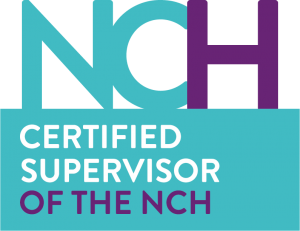What is it that you wish for exactly?

A number of years ago I gave a presentation to new servicemen; it was part of an initiative designed to get the trainees thinking about their future Naval service and to inspire them to be the very best they could be. My presentation was based upon some observations I had across all levels of Naval personnel, from junior sailors all the way through to the officer corps.
This TED type talk was based upon their wishing their lives away. Throughout my time I realised there was a culture of:
“I can’t wait until……if only… (Promotion/pension/payday/next stop/I get home etc.)”
There was always something to keep them focused on the future, predominantly based upon the promotional system which kept us driving forward, yet I found that because of this, time was being wished away. Long periods of operational deployments were deemed by many to be simply pauses in their life until they get to the next thing they were wishing for. Once I realised this, I became aware that time was passing me by very quickly. It was then that I realised that one of the things that we do as humans is to wish, to build hope and expectancy for the future. People seek answers, not just knowledge and understanding, but they seek real answers about what will happen next in their future.
I begin to wonder what it was that people wished for when throwing pennies in a well or cutting their birthday cake and the many other occasions when wishes are the norm. A small amount of thought and research led me to conclude the following:
Material Things – Such as cars, houses, money.
Self-Confidence – To lose weight, be attractive, increases in self-esteem and to go after those things that we want.
Adventure – To travel, learn a new skill, and give something back to society.
Spiritual/Emotional – develop new friendships and relationships, feel forgiven and at peace, reduce self-limiting thoughts and behaviours, make a difference.
Career-Related – promotion, recognised, develop talent, be more productive, to master a skill, pursue a new career which is more of a calling, develop a better work/life balance.
Lifestyle – feel refreshed and ready for the day, be happy, have children and grandchildren, to feel useful in life, to find love.
Health – prevent/recover from illness, maintain a healthy mind and body, have energy, and find a way to enjoy exercise, healthy diet so as to achieve sporting goals.
Of course this is not a definitive or exhaustive list, but it was Maslow who provided further understanding with his now famous model which places these things into a hierarchy, meaning that to really grow and fulfil your potential it was appropriate that you needed to satisfy each step before moving to the next.
Is this really what people want from life? In fact when asked what people really want the answer is often simple… happiness. However, is this happiness brought to us by getting what we wish for? I decided to search for the regrets people have towards the end of their life and if any of these things matched:
Spending more time with the people that they loved.
Worry less.
Hold less grudges and be enjoy emotional freedom.
Better stood up for oneself.
Lived their own life.
Worked less.
Cared less about what other people thought.
Lived up to their full potential.
Faced their fears.
Stopped chasing the wrong things.
Lived more in the moment.
Stayed in touch with friends.
Been happier.
I do believe, and it’s quite obvious that there is a correlation between what actually matters towards the end and what people are wishing for now. I’d like you to take just 50 seconds from your busy day to answer the following questions truthfully and honestly, and as quickly as you can, go with your instincts:
What would you like to have happen?
And what needs to happen to achieve this?
What’s the emotional cost versus the financial cost?
What would have to happen to be able to achieve this?
What is actually preventing you getting what you want?
If it with this simple why wouldn’t everybody get everything they wished for? You wouldn’t be surprised to hear that simply wishing for something does not bring it closer. You may not believe this but there is no such thing as luck, however, there are a many opportunities which present themselves every day and therefore you can actively work towards achieving your goals daily. Often people will move towards their goals a little bit but then fall by the wayside as things often become too difficult, complex or arduous. Now I’m not suggesting that merely persistence is the answer to the fulfillment of your dreams or getting what you wish for. One of the factors is approach. There are two types of people:
1. Reactive
2. Proactive
Reactive people make up the mainstay of the population. This group has a complete cross-section of intrinsic, internal motivating factors. Some of whom are content to have a small bit of money in their pocket, a steady job and a loving family whilst others will often feel frustrated at work seeking promotion responsibility and not understanding why they aren’t achieving this. Reactive people do exactly as the name suggests, they react to external stimuli i.e. the email that just dropped in your inbox requesting an answer by close of play today which means being late home from work, getting stuck in traffic etc… reactive people reacting.
Proactive people at those individuals who can break free from the reactive shackles. I’m not suggesting that all proactive people don’t have an element of reaction but they seek to be proactive, to seek new innovative ways of doing things, to get what they need from others and cause the reactions that drive other people’s workloads. Maybe this is a contentious issue and worthy of further debate. If you accept that you are reactive, why is it then you just don’t change? Becoming proactive and working towards your goals? Do you fear uncertainty and the surprises that new ways of doing business bring? Are you concerned about your and competence or an increased level of the new workload? Do you fear of ripple effect or the threat of doing something difficult or different? Could it just be simpler, is it the feeling of losing the investment you’ve made in your work by doing things the way you’ve always done them? Does it just make you feel uncertain? So many questions.
There are a number of solutions. Those which could provide you with a better quality and normality of life through to improving your (or your team’s) performance. To make more time to enjoy family time, you could seek coaching, therapy or counselling. If it’s something you’ve never considered before then maybe it’s worth thinking about. Coaching isn’t being told what to do or even somebody just helping. No, coaching is exploration. Asking yourself those questions that you may be afraid to ask and answer, by holding yourself to account as you move towards a desired change. Therapy on the other hand is coming to terms with and positively dealing with issues that have been created by the very fact that we human. What makes us amazing as human beings can also hinder us in our lives or be forced onto us by events. So why do people avoid coaching and therapy? What are those avoidance factors (Vogel, Webster and Larson, 2007, p.410)?
1. Social stigma – being judged for seeking help and support.
2. Treatment fears – the fear of vulnerability, how the health professional will treat them.
3. Fear of emotion – the fear of discussing personal issues. The less comfortable with the emotions the less that the client will seek assistance.
4. Anticipated utility and risks – perceived usefulness of the sessions and risk to the individual.
5. Self-disclosure – degree in which the client wishes to reveal personal information.
6. Social norms – this is the degree by which an individual will be embarrassed or affected by seeking help.
7. Self-esteem – a self-admission of needing help which reduces ones confidence in themselves, often easier to be in denial about seeking assistance.
In many cases it is seen as acceptable for women to seek therapy, coaching and counselling over men who see this as “increased feelings of failure [associated with maleness]” (Vogel, Webster and Larson, 2007, p.414) which of course is plainly not true.
Conclusion
Although people are seeking happiness, this is often merely wishful thinking which sometimes is recognised only towards the end when reflecting with the benefit of hindsight. In order to reduce any potential regrets and to move forward towards a person’s goals and hence increase their overall well being there is an industry ready to support and help people. This could be facilitating the direct planning of how to achieve a goal, improve performance or to come to terms with the past and to move forward towards a new future peacefulness in their lives. There are a number of reasons why individuals may choose not to seek assistance, all of which would seem to pale into insignificance if compared with the thought of future regrets.
Thoughtlounge is based in both The Avenue in Southampton and on London’s Harley Street and offers a complete catalogue of HR services to individuals and companies. An expert in solution based clinical Hypnotherapy, NLP and in management and leadership coaching, Iain also conducts consultancy services, team forming and building and also delivers business and management training.
For more information or to contact Iain to discuss whatever the presenting issue is contact me:
https://www.linkedin.com/in/iain-lightfoot-msc-dhyp-mnch-reg-6a362626
References:
Vogel, D, Webster, S, and Larson, L,. (2007). Avoidance of Counselling: Psychological Factors That Inhibit Seeking Help. Journal of Counselling & Development, 85, 410-422.
Simons, J, Irwin, B, and Drinnien B,. (1987). Maslow’s Hierarchy. Psychology - The Search for Understanding. West Publishing Company. New York.





